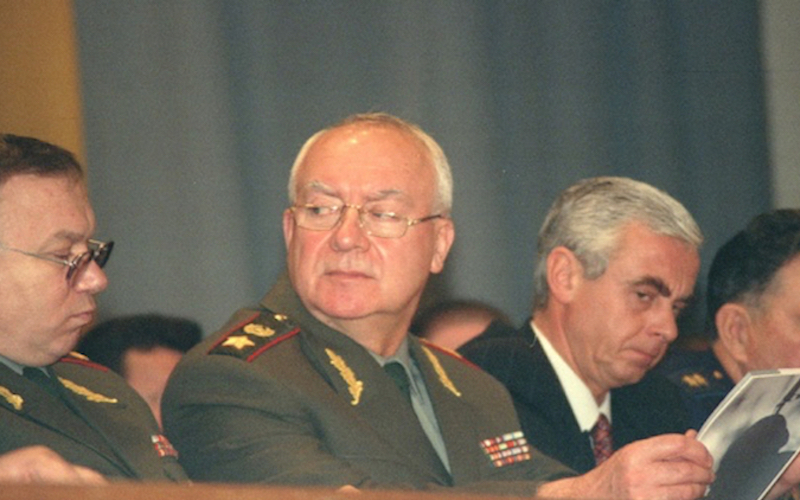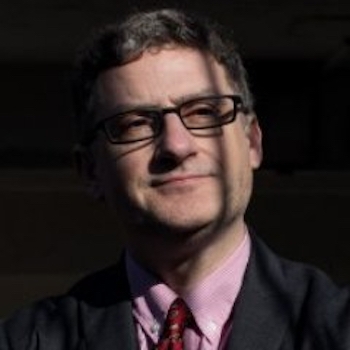
Igor Rodionov, 1936-2014: Soldier, Scapegoat, Minister, Hard-Liner and Reformer, All at Once
Army General Igor Nikolaevich Rodionov, the former defence minister who in many ways epitomised what was both the best and the worst of the Soviet officer corps, died today after a lengthy illness. A career soldier, he commanded the 40th Army in Afghanistan 1985-86 and went on to become defence minister 1996-97, then chair of the Popular Patriotic Party of Russia (NPPR)/Rodina, as nationalist a group as the name would suggest, retaining links with the Communist Party (who came out with the first fulsome obituary). His reputation was as a meticulous and no nonsense soldier, of the austere rather than jovial variety, but as a nobody PhD student who wrote to him while he was heading the General Staff Academy in 1988, I found him unexpectedly thoughtful and receptive (I’ll be honest: I wrote on the very off-chance and was amazed to get a reply of any kind).
He was awarded 12 medals, including the Order of the Red Banner, the Order of the Red Star, and the Order For Service to the Homeland in the Armed Forces of the USSR, but his public reputation was dominated by the fact that while he was commander of the Transcaucasus Military District, his troops were deployed brutally and lethally to suppress protesters in Tbilisi in April 1989. Nonetheless, the orders came from Moscow, and the 19 deaths reflected not his orders but the troubles that can happen when paratroopers without public order training find themselves facing mobs–just ask the British paras behind the 1972 Bloody Sunday massacre in Derry…
Yes, of course Rodionov was a solid supporter of Soviet power, with all the authoritarian instincts one would expect. However, he was by no means an unthinking or unreasonable one.
In some ways, he was the military’s equivalent of KGB chief repressor-but-also-patron-of-reform Yuri Andropov and, like Andropov, may have been one of those interesting “what if?” characters. His command of the 40th Army coincided with the start of de-escalation as a prelude to the withdrawal. Although his successor Boris Gromov would be associated with the withdrawal, Rodionov began the process and also clearly came to appreciate the challenges of trying to use force in such circumstances. After April 1989, the “butcher of Tbilisi” needed to be found a quiet berth away from the public eye and he was appointed to head the General Staff Academy, where the syllabus and his writings demonstrated not just considerable intellectual rigour but also an awareness of the need for fundamental reform.
He brought this awareness to the defence ministry when Yeltsin appointed him in 1996 to replace underperforming and overpromoted “Pasha Mercedes” Grachev. Presumably he was appointed precisely as a sober professional (unlike Grachev) who was willing to stand up for rational military reform (unlike Grachev) and avoid being a mere yes-man (unlike Grachev). However, Yeltsin never showed much lasting enthusiasm for such people. Rodionov’s repeated public statements that reform was impossible without adequate resources sealed his fate, and he was soon dismissed.
His subsequent engagement with nationalist politics was predictable, if a little depressing. However, it is worth noting that Rodionov in many ways had the last laugh. The Russian military did, finally, start a proper reform process, and with the resources it needs. Furthermore, its new way of war owes much to Rodionov’s own writings, including his growing interest in informational warfare, as well as his prescient understanding, from back in 1995, that “The world exists and is developing today not in accordance with the ‘new political thinking’ or the ‘priority of universal human values,’ but amid global rivalry and a struggle for strategic survival in the 21st century.” He was a hawk, but a hawk willing to look at the world as it really is, and also a hawk who was neither personally corrupt nor willing to abandon his principles for political favour, both relatively unusual characteristics in the late Soviet and post-Soviet high command.
Politicians found Rodionov worrying. Soldiers I spoke to almost invariably used the word “professional” and held him in high esteem. I suspect he would have found that juxtaposition a pleasing epitaph.
This article was originally posted in In Moscow’s Shadows.

